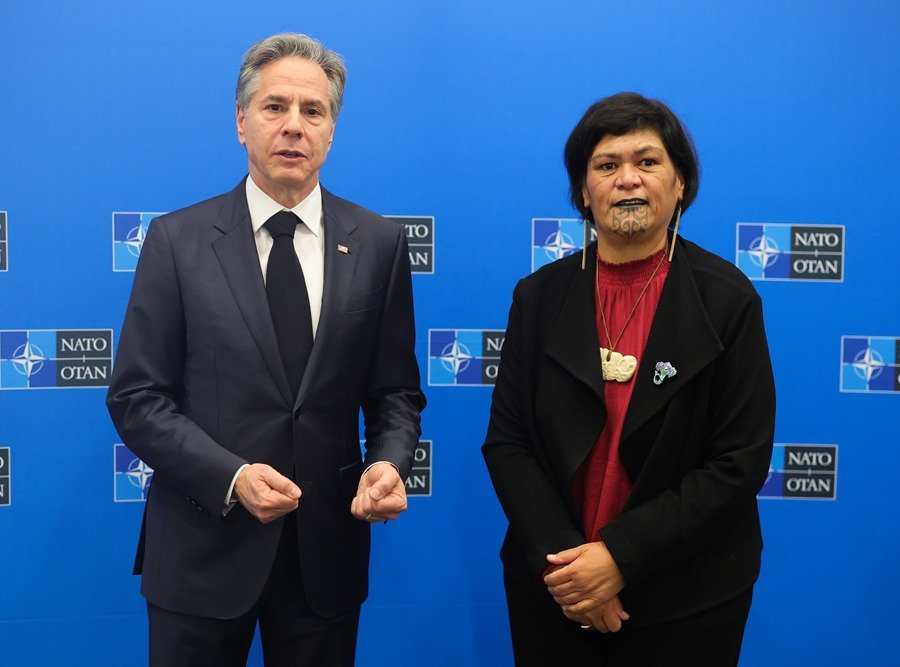Brussels (BLAZETRENDS).- The NATO foreign ministers will address this Wednesday in Brussels the “increasing alignment” of China’s positions with Russia, and will discuss security in the Indo-Pacific region with their counterparts from Japan, South Korea South, Australia and New Zealand.
“We will discuss how to counter all threats and challenges facing our lines, including those emanating from the south, and how to deal with growing strategic competition. Including the increasing alignment of China with Russia”, said the secretary general of the Alliance, Jens Stoltenberg, at the beginning of the meeting.
After the ministers allied with the Ukrainian Foreign Minister, Dmitro Kuleba, participated in a NATO-Ukraine Commission on Tuesday, Stoltenberg stressed today that Russian President Vladimir Putin “is not preparing for peace, he is preparing for more war ”.
He insisted that the allies continue to provide kyiv “with what it needs on the battlefield to prevail as a sovereign and independent nation.”
For Stoltenberg, it is necessary to “guarantee that authoritarian leaders do not learn the lesson that when they use military force, when they violate international law as President Putin does in Ukraine, they can achieve what they want,” he said on Tuesday when receiving the Japan’s Foreign Minister Yoshimasa Hayashi.
“Of course, we are concerned that China offers additional help to Russia and it is very important that we have a common response,” Finnish minister Pekka Haavisto, whose country formally joined the Alliance, stressed today upon arrival at the meeting.
German Foreign Minister Annalena Baerbock made it clear that China “has a special responsibility” as a member of the UN Security Council.
“Also a special responsibility because in 2013 he promised Ukraine in an agreement that he would also take responsibility for its security. In this case, China’s supposed neutrality is not what would be appropriate,” he commented.

In the opinion of his Czech counterpart, Jan Lipavsky, it is necessary to “understand that China’s increase in power entails many global threats”, and he referred specifically to artificial intelligence, new technologies or commercial dependence.
“Canada believes that China is an increasingly disruptive global power and will continue to address the challenges of the Indo-Pacific here in NATO but also at the national level”, which is why it will increase security funding for that region, the Canadian minister said. Melanie Joly.
Another issue that the allied ministers will address today will be defense spending, on which they hope to push for new targets at the next NATO summit in Vilnius in July.
“We cannot take our security for granted, so we must invest more in our defense,” said Stoltenberg, who advocated that “at least” 2% of GDP be dedicated to military spending.
“For me, the important thing is not to talk about figures, because it does not contribute anything to security if these calculations do not suppose, de facto, that there are more military capabilities,” Baerbock said.
Instead, Haavisto stressed that Finland already meets that 2% and considered that “it is important that everyone reaches at least 2%.”
The Czech minister indicated that his country will invest 2% of its GDP in defense next year.
“I know that the Czech Republic has not been leading defense investment, but we are going to fix it,” he said.
Another matter that the leaders referred to upon their arrival was that of Stoltenberg’s succession at the helm of NATO, since his term -already extended three times- ends next October.
Asked about the possibilities of former Finnish Prime Minister Sunna Marin, Haavisto said he had no comment on it and assured that “we have many good candidates.”
“As a new member, we are going to listen to the debate” in that section, he said.

